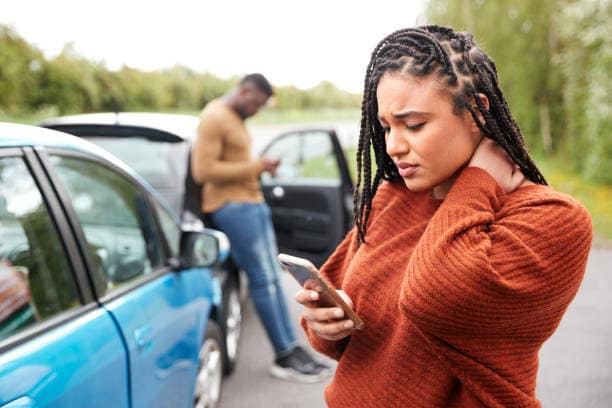If you’re in a car accident, maybe you caused the wreck, or perhaps the other driver did. Sometimes, you may have situations where you share the blame. In at-fault car accident states, this matters. In no-fault car accident states, it typically matters less unless one driver sues the other.
In some instances, a passenger might cause an accident. It’s not as common as a driver making a poor decision and causing a wreck, but it can still happen.
Consequences of reckless passenger behavior can include serious injury, deaths, a totaled car, or property damage. It’s worth discussing passengers causing car accidents, so let’s do that now.
Negligence in Car Accidents
In legal cases, especially lawsuits, the term “negligence” can often arise. When it does, it means one particular thing. You should know what it means when someone accuses someone else of negligence in a courtroom setting since a jury’s decision can hinge on this legal concept.
Negligence means someone acted in a certain way that endangered others. Usually, a jury or judge will determine whether a person or entity acted negligently depending on what others might have done in similar circumstances.
In other words, if someone acted negligently, that means they did something, or sometimes didn’t do something, that a decent, conscientious person or entity would have done in similar circumstances. For instance, maybe someone saw an individual drowning right in front of them. They didn’t jump in to rescue them, nor did they think of calling for help. Instead, they sat there and watched them die.
In that situation, proving negligence becomes relatively easy. Negligence often enters into car accident lawsuits as well. If one driver sues another, and they claim the driver they’re suing acted negligently, they will often win their case if the jury agrees. However, a car’s passenger can also act negligently in some instances.
Distracting the Driver
If a driver makes a bad decision and causes a wreck, the other driver might go after them in court. That’s more likely in at-fault states.
In at-fault states, the driver’s insurance who caused the accident must cover the damages. By contrast, in no-fault states, each driver must have a certain amount of PIP insurance, which stands for personal injury protection. In these states, each driver’s insurance covers their car damage.
However, whether you live in an at-fault or no-fault state, if you believe the other driver caused the accident, and your insurance or theirs doesn’t fully pay for medical bills, lost wages, car repairs, or pain and suffering, that’s when you might sue. If you’re sure the other driver caused the accident, then your lawsuit should target them. What if the other driver says their passenger did something that caused the wreck, though?
If so, you might sue the other car’s passenger and not the driver. You might do that if the other driver says their passenger did something that distracted them.
Maybe the passenger yelled or did something else that caught the driver’s attention while in the passenger’s seat. Perhaps they did something in the backseat that caused the wreck, like grabbing the driver by the back of the neck, throwing something, or otherwise acting inappropriately.
That could constitute negligence, as we described earlier. However, just because the other driver says this happened, that does not necessarily mean you will automatically win your lawsuit against the passenger. Maybe they offer a different story that refutes these events.
Grabbing the Wheel
A passenger might also grab the wheel from the driver, causing an accident. Maybe they did this during a heated argument. If the driver and passenger have a volatile relationship, these things can happen.
Perhaps the passenger grabbed the wheel during a physical altercation between the driver and passenger. If there’s a domestic violence situation going on, that might trigger such an event. If the passenger grabs the wheel, they’re demonstrating negligence or at least reckless behavior.
The car might easily swerve into another lane without signaling. It might cross a double yellow line into oncoming traffic and cause havoc. A passenger can cause a multiple-car accident in these situations.
What Can Happen if the Other Driver Alleges Passenger Negligence?
If the other driver alleges passenger negligence, then you might have a situation with both the other car’s driver and their passenger appearing in court, each with their own legal representation. These trials can get messy in a hurry. If the driver says one thing happened, and the passenger gives an entirely different story, proving what occurred becomes difficult.
If you’re suing the passenger, but they say the driver caused the wreck, you must locate any evidence that proves one story’s version and refutes the other. If you were not in the other car, though, you can imagine how difficult that becomes. If you don’t have video evidence that shows what happened in that car, or you can’t find any eyewitnesses, then a jury will probably decide who’s at fault and who demonstrated negligence.
What Happens if You Can Prove the Passenger Acted Negligently?
If you can prove the other car’s passenger acted negligently, you will probably win your case. The passenger might also settle with you out of court if their lawyer recommends it.
If you can’t prove conclusively that the other car’s passenger caused the accident or acted negligently, then you must hope the jury believes you or the other driver and not the passenger. If they feel there’s not enough evidence, you might walk away from the trial with nothing.
Passengers can always influence what happens in a car. If you have someone who regularly acts recklessly, then grabbing the wheel, yelling at the other driver, or striking them could easily cause a wreck.
Sometimes, character witnesses might lend a hand if there’s no material evidence to suggest the other car’s passenger acted negligently. If multiple individuals come forward and agree this person frequently acts recklessly, you might win your lawsuit that way.
Published by HOLR Magazine.



